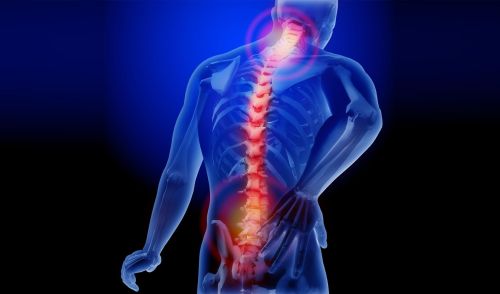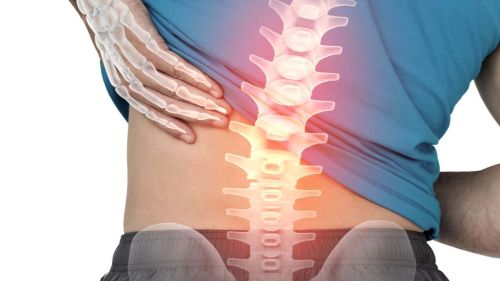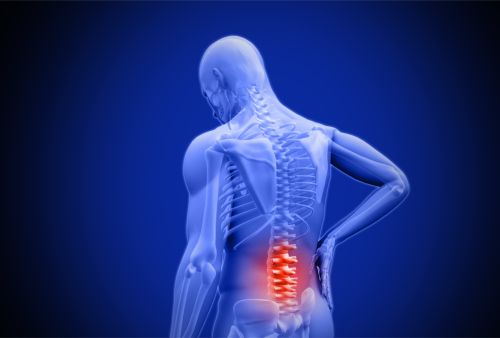It is a surgical procedure performed when the internal organs of the body move out of their normal position in the abdominal area. Hernia surgery is performed to repair the hernial sac and return the internal organs to their place. It is usually done under general anesthesia. After the operation, patients should rest for a few days and avoid heavy activities. It is an effective solution to improve patients' quality of life.
In what cases is hernia surgery performed?
 It usually causes pain and discomfort in the abdominal area or groin. If this condition negatively affects daily life, surgery may be required. If the hernia grows over time, this can increase the risk of compression of internal organs. An enlarging hernia usually requires surgical intervention. If it is accompanied by symptoms such as nausea, vomiting, difficulty defecating, it is considered an emergency. Requires hernia surgery. It refers to a condition in which internal organs become trapped within the hernial sac. A trapped hernia can cause blood flow to be cut off, requiring immediate surgical intervention. Someone who has had this surgery before may consider having surgery again if the hernia recurs. If it negatively affects the person's quality of life, surgical intervention may be considered. The decision for hernia surgery is made as a result of the doctor's evaluation of the patient's health condition, the size of the hernia and its symptoms. In each case, the most appropriate treatment plan is created taking into account the patient's condition and needs.
It usually causes pain and discomfort in the abdominal area or groin. If this condition negatively affects daily life, surgery may be required. If the hernia grows over time, this can increase the risk of compression of internal organs. An enlarging hernia usually requires surgical intervention. If it is accompanied by symptoms such as nausea, vomiting, difficulty defecating, it is considered an emergency. Requires hernia surgery. It refers to a condition in which internal organs become trapped within the hernial sac. A trapped hernia can cause blood flow to be cut off, requiring immediate surgical intervention. Someone who has had this surgery before may consider having surgery again if the hernia recurs. If it negatively affects the person's quality of life, surgical intervention may be considered. The decision for hernia surgery is made as a result of the doctor's evaluation of the patient's health condition, the size of the hernia and its symptoms. In each case, the most appropriate treatment plan is created taking into account the patient's condition and needs.
How is Hernia Surgery Performed?
 Before surgery, the doctor takes the patient's medical history and performs a physical examination. Necessary blood tests and imaging methods (ultrasound, MRI, etc.) may be requested. General anesthesia or local anesthesia is applied to ensure the patient's comfort during the operation. Which type of anesthesia is used depends on the patient's condition and the location of the hernia. An incision is made in the skin at the surgery site. While a larger incision is made during open hernia surgery, small holes are opened in the laparoscopic (closed) method. The hernia sac is found and the tissues inside are placed back. Stitches or a synthetic mesh are usually used to prevent the hernia from recurring. The mesh accelerates the healing process by providing support in the hernia area. The incision is closed with stitches or staples. After the operation, the patient must stay in the hospital for a certain period of time to rest. Mild pain, swelling and discomfort are normal in the first days. After surgery, the doctor performs a follow-up examination to check the healing. During this process, the patient's symptoms are evaluated. Patients should avoid heavy lifting and intense activities for a few weeks after surgery. Hernia surgery is generally a safe procedure. Most patients can return to normal activities quickly after surgery. However, every surgery has risks; Therefore, it is important to follow the doctor's instructions.
Before surgery, the doctor takes the patient's medical history and performs a physical examination. Necessary blood tests and imaging methods (ultrasound, MRI, etc.) may be requested. General anesthesia or local anesthesia is applied to ensure the patient's comfort during the operation. Which type of anesthesia is used depends on the patient's condition and the location of the hernia. An incision is made in the skin at the surgery site. While a larger incision is made during open hernia surgery, small holes are opened in the laparoscopic (closed) method. The hernia sac is found and the tissues inside are placed back. Stitches or a synthetic mesh are usually used to prevent the hernia from recurring. The mesh accelerates the healing process by providing support in the hernia area. The incision is closed with stitches or staples. After the operation, the patient must stay in the hospital for a certain period of time to rest. Mild pain, swelling and discomfort are normal in the first days. After surgery, the doctor performs a follow-up examination to check the healing. During this process, the patient's symptoms are evaluated. Patients should avoid heavy lifting and intense activities for a few weeks after surgery. Hernia surgery is generally a safe procedure. Most patients can return to normal activities quickly after surgery. However, every surgery has risks; Therefore, it is important to follow the doctor's instructions.
Things to Consider After Hernia Surgery
 Resting for the first few days after the operation will help your body heal. You should avoid lifting heavy objects and strenuous activities for at least 4-6 weeks. Keep the pain under control by regularly taking painkillers recommended by your doctor. If the pain cannot be controlled or becomes severe, contact your doctor. Be careful to keep the wound area clean and dry after hernia surgery. If there are signs of infection (redness, swelling, discharge) in the stitches, inform your doctor immediately. Drinking plenty of water and consuming fibrous foods helps your digestive system function regularly. Constipation can put pressure on the hernia area, so pay attention to your diet. With your doctor's approval, you can start taking light walks. But don't rush your exercise program. When returning to your normal activities, proceed slowly and pay attention to your body's reactions. Go to regular follow-up appointments after surgery. In case of severe pain, fever or unusual symptoms, contact your doctor. It is important to be careful after hernia surgery. It will positively affect your recovery process and reduce your risk of complications. It is important that you follow these recommendations to have a healthy recovery period.
Resting for the first few days after the operation will help your body heal. You should avoid lifting heavy objects and strenuous activities for at least 4-6 weeks. Keep the pain under control by regularly taking painkillers recommended by your doctor. If the pain cannot be controlled or becomes severe, contact your doctor. Be careful to keep the wound area clean and dry after hernia surgery. If there are signs of infection (redness, swelling, discharge) in the stitches, inform your doctor immediately. Drinking plenty of water and consuming fibrous foods helps your digestive system function regularly. Constipation can put pressure on the hernia area, so pay attention to your diet. With your doctor's approval, you can start taking light walks. But don't rush your exercise program. When returning to your normal activities, proceed slowly and pay attention to your body's reactions. Go to regular follow-up appointments after surgery. In case of severe pain, fever or unusual symptoms, contact your doctor. It is important to be careful after hernia surgery. It will positively affect your recovery process and reduce your risk of complications. It is important that you follow these recommendations to have a healthy recovery period.


